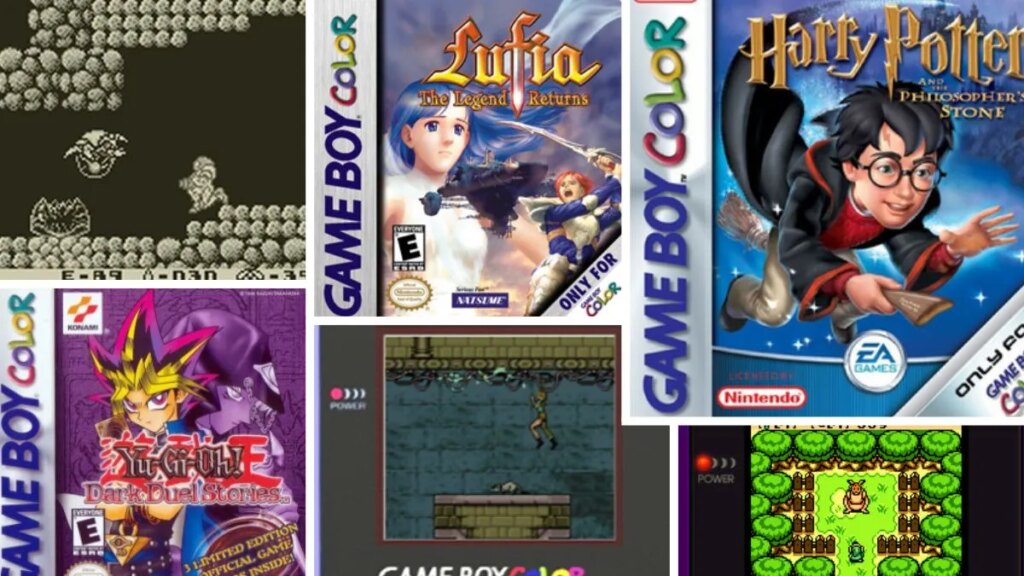The Game Boy Color was the successor to Nintendo’s flagship handheld that shaped an entire generation. I have fond memories of playing Pokemon Blue on my original Game Boy, which I still have, and seeing the anticipation around a new, sleeker version with a color screen was almost too much to bear.
Not only did that new screen boast actual colors that didn’t make your games look green and black, but it also had exclusive titles that your old device simply couldn’t run. Many of these were so iconic and felt so amazing to play that they continued to shape that generation the device’s predecessor had nurtured, adopting more and more fans as time went on and hit after hit landed on its tiny portable screen.
The 20 best Game Boy Color games that shaped the future of video games
I think the Game Boy Color is such a powerful and memorable moment in the history of video games that it deserves a list of the best, biggest, and brightest games that weren’t only fabulous at the time but went on to shape games as we know them today. These games all have a valid reason for being on this list, and I’ve explained why and what games you may know that they helped plant the seeds for back in the day.
20. Pokemon Gold and Silver (1999)
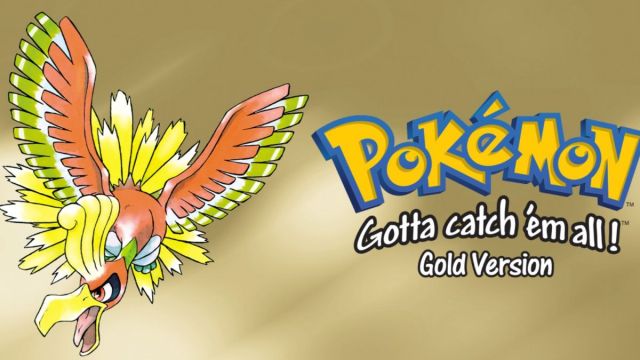
Pokemon Red and Blue are the games that started it all, sparking the fire that is the Pokemon game franchise. It was Pokemon Gold and Silver that I remember as the real game changers. The plethora of new Pokemon and two new regions, as well as new mechanics like the day and night cycle and converting berries into specific types of PokeBalls, were all iconic.
When I speak to friends about the series, it’s these games I always point to as the ones that blew me away. Sure, I played Red and Blue a lot, just like everyone else, but it’s the way Gold and Silver built upon what had come before that set the series up to iterate on its formula with every new mainline release. While some may have gone astray, depending on who you speak to, this is where that improvement on everything that came before began.
19. Kirby Tilt ‘n’ Tumble (2000)
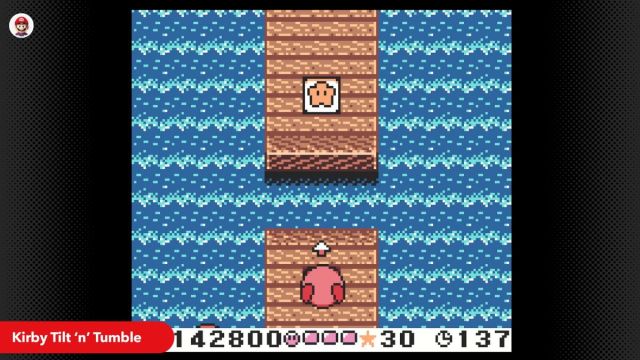
The reason Kirby Tilt ‘n’ Tumble is so iconic, even though it did make its way to the PAL region outside of Nintendo Switch Online, is because of that accelerometer usage. You had to move your Game Boy Color to get Kirby to move around the game world, which later translated into gyroscopic controls. This innovative use of physical movement to create in-game movement has become much more common today but wouldn’t exist had it not been pioneered by characters like our pink friend here.
18. Harvest Moon 3 (2000)
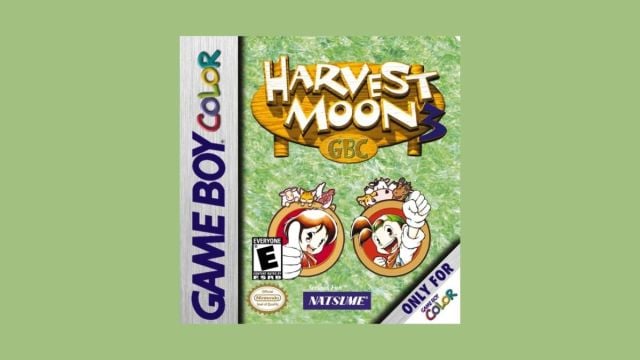
Harvest Moon 3 isn’t the first game in the series to grace the Game Boy Color’s screen, but it is the first to bring marriage to the series on that system. This may not mean much to you if you don’t play games like Stardew Valley, but marrying an NPC you’ve had your eye on from the very beginning feels like completing one of the longest missions in any game.
So many games now include romance mechanics because of this, even if they’re not necessary. It’s games like Harvest Moon 3 that showed players and developers that there’s value in attainable goals that don’t necessarily impact the endgame, such as killing a giant dragon to reclaim your heart.
17. Pokemon Pinball (1999)
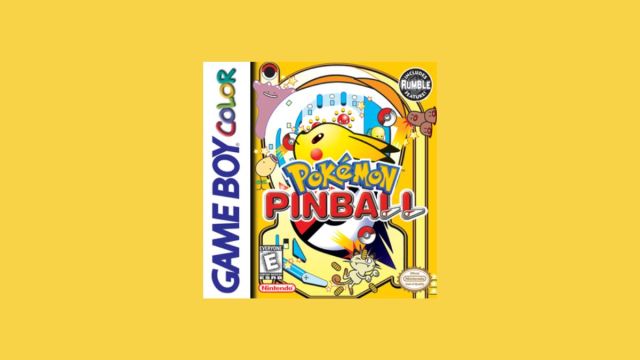
Few franchises can afford to have spin-offs in genres they’re not known for. With Pokemon Pinball, Nintendo took a calculated risk that paid off. I remember playing this game almost constantly over one Christmas break because of its clever blend of Pokemon and pinball gameplay. You get to catch Pokemon and hunt down the ones missing from your Pokedex, all within deeply engrossing pinball gameplay.
The addition of the rumble pack was genius, bringing the pinball table to life. For a game that’s initially so simple in concept, it’s surprisingly challenging. You have to learn how the tables work if you’re going to catch the rarest Pokemon out there, and even then, they’re not easy. What this game paved the way for was entries such as Metroid Prime Pinball and other seemingly wacky spin-offs that actually play extremely well once you get your hands on them.
16. Pokemon Trading Card Game (1998)

Pokemon Trading Card Game is exactly what it sounds like: a portable version of the TCG but built as a game you could play on your Game Boy Color. The gameplay resembles the mainline Pokemon games, but it streamlined the TCG experience through that lens and made it easier to process and play. As one of the earliest handheld digital card games, it opened the door for titles like Balatro to mix up the genre and give us meatier TCG experiences we can dig into on a portable platform.
15. Mario Golf (1999)
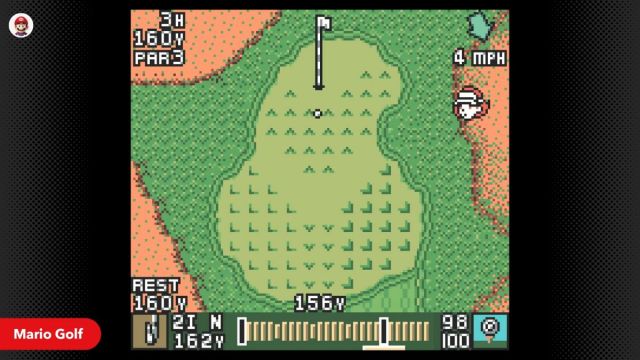
Plumbers all deserve a break when they can get one, but golf doesn’t sound as relaxing to me. Mario Golf for Game Boy Color is the second game in the franchise and the first handheld entry. Like Pokemon Pinball, it blurs the lines between the Mario franchise and a sporting genre you’d probably think he has no place being a part of. But it’s golf games like this that showed people like me that sports games don’t have to be boring, though, quite the contrary.
There’s a certain thrill to hitting the ball onto the green in your first shot that only feels right when playing on a portable device. They’re the reason so many golfing games get made, especially the ones that take the idea and twist it, such as Golf With Your Friends.
14. Dragon Quest Monsters (1999)
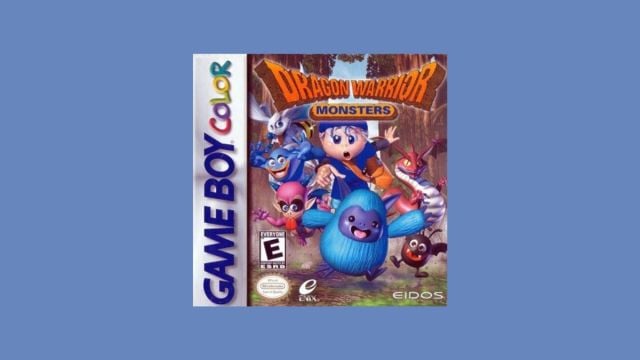
In Dragon Quest Monsters, players found a genuinely enthralling mix of monster-catching and breeding mechanics with a rich RPG storyline that would take them hours to complete. Pokemon proved that RPG mechanics fit pretty well with an RPG, but Dragon Quest took what it was known for and added that new system to give players dozens of hours of replayability.
I feel as though this made it possible for games like Final Fantasy 7 to include a Chocobo breeding mechanic, a side activity you could lose yourself in but don’t need to. These extra layers to already colossal games make you feel like you’re getting your money’s worth, and they’re a great talking point for fans.
13. Metal Gear Solid (2000)
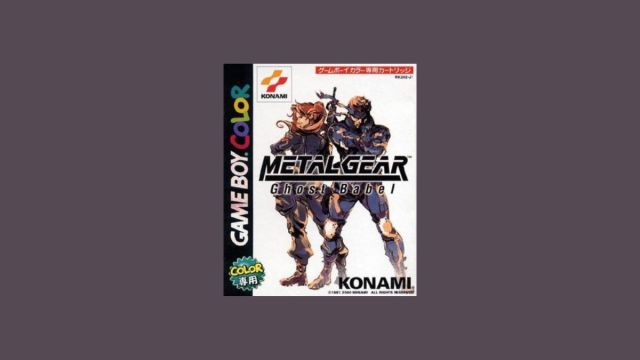
The Metal Gear Solid series is iconic, and even in 2000, when the Game Boy Color entry, known as Metal Gear: Ghost Babel in Japan, was released, it was no less so. What started as an adaptation of the PS1 game turned into a standalone entry set seven years after it using the top-down view of previous entries.
What makes it iconic is the uncompromising experience of stealth action it provides, forcing you to think on your feet and slow down a little on a handheld title. While I’m sure it would have happened eventually, this entry proved there was an audience outside of home consoles that was crying out for Metal Gear Solid on their portable devices.
12. Pokemon Crystal (2001)
Another Pokemon entry on this list? Well, Gold and Silver certainly pioneered the way the developers would go on to innovate in the franchise, but Crystal opened a whole new can of worms. Here, we have a new mainline entry that’s just a single game, not a pair as we’d been used to previously.
This game changed the way the Pokemon series evolved. The third entry brought feature improvements that the previous two needed to make for the ultimate version of the current generation. It walked so Pokemon Emerald and Platinum could run, the former of which added the Battle Frontier, an area I still see Youtubers discussing today.
11. The Legend of Zelda: Oracle of Ages (2001)
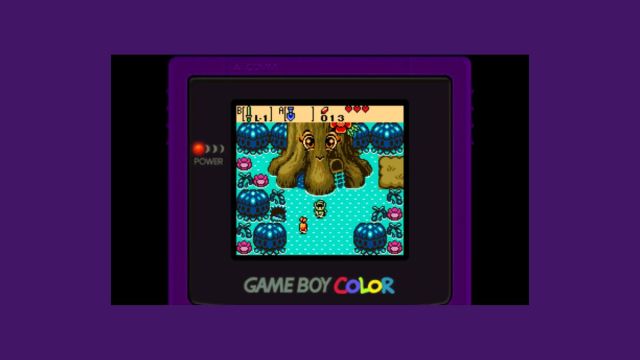
Released alongside The Legend of Zelda: Oracle of Seasons in a Pokemon-style dual launch, Oracle of Ages manages to bring elements of other games in the series and make them fit even better within the game world and platform you’re playing on. Using the Harp of Ages, Link can travel through time and space to move objects in the past and impact the future, helping you solve puzzles and traverse the world.
This mechanic wouldn’t shock me in a game today, but back on the Game Boy Color, it was pretty inventive. It forced you to think outside the box on every screen and at every moment, because something you might not be able to see at the time could be the solution to the problem you have. In fact, you only need to look at The Legend of Zelda: The Minish Cap on the Game Boy Advance to see how this game impacted world design within the same series.
10. The Legend of Zelda: Oracle of Seasons (2001)
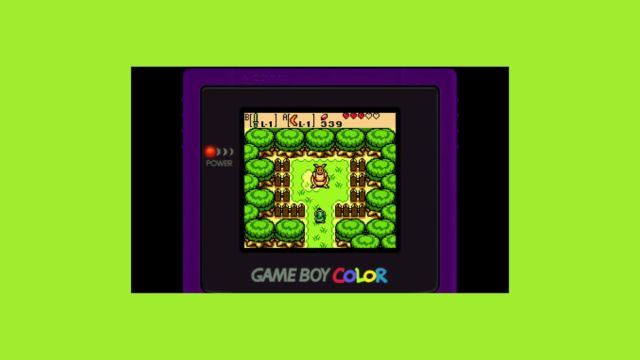
When examining how The Legend of Zelda: Oracle of Seasons influenced the future of video games, you could easily swap it for Oracle of Ages. In this entry, Link changes the seasons to solve puzzles using the Rod of Seasons. Once again, it’s a handheld title that takes the complexity of world-altering powers and requires you to use them to solve puzzles and complete more complex tasks. It doesn’t hold your hand, and as games have become more innovative and challenging in their design over time, you can still look back and point to this one as an inspiration for certain aspects.
9. Metroid 2: Return of Samus (1991)
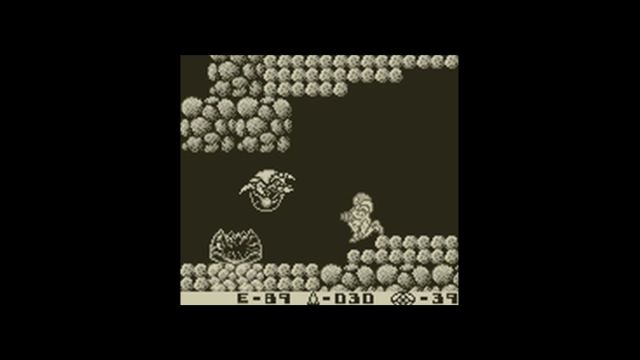
Metroid 2: Return of Samus is arguably one of the best games in the entire franchise. After all, it was good enough to get a remake. It’s not hard to work out why this game’s iconic, pioneering the Metroidvania genre, which is literally named after it. I think this game was great at making you learn the map as you played, allowing you to create an image you could then use with each new upgrade as you acquired them. It’s informed so many games that have come since in multiple ways, a truly iconic Game Boy Color game.
8. Survival Kids (1999)

Survival Kids is the game you played after watching Swiss Family Robinson as a kid. While the parents provide for and protect their children in that story, Survival Kids sees you work it all out for yourself. There are hunger, thirst, and tiredness meters to track while you work out where all the tools you need are so you can survive smarter, not harder.
This game is one of the earliest in the survival genre, showing fans exactly what was possible with open-ended gameplay and a few mechanics that vaguely resemble your bodily functions. It’s also pretty charming to look at, unlike Sons of the Forest, which is a win in my book.
7. Lufia: The Legend Returns (2001)
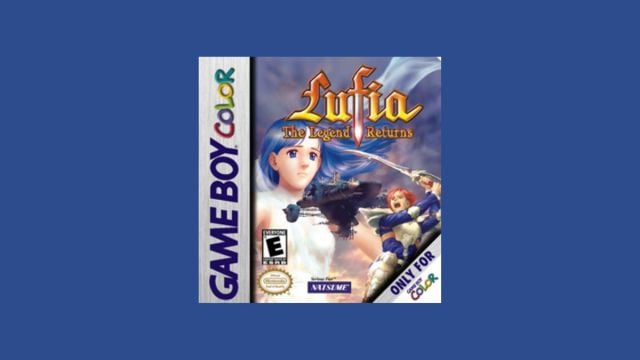
The Lufia games don’t get nearly enough attention, and Lufia: The Legend Returns was one of the best-looking and best-sounding Game Boy Color games to bot. It’s a grand adventure that’ll draw you in and never really let you go, except when you need to go rooting through menus. This game shows that you don’t need to be sleek and stick to every trope. All the major releases are to be popular and grow your audience. It’s possible to do that by staying true to your vision.
6. Tomb Raider (2000)
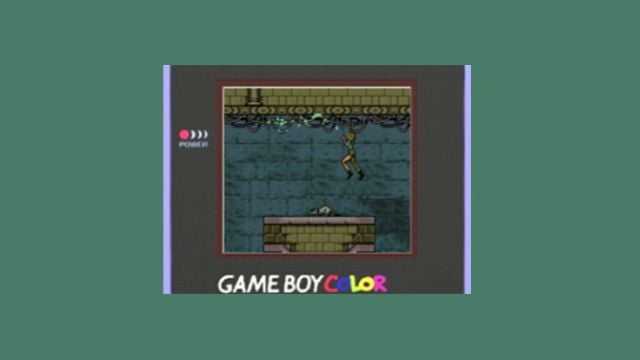
While it didn’t follow the original PS1 entry for four years, Tomb Raider on the Game Boy Color is a vital game for platformers and the treasure hunting subgenre that’s grown in popularity ever since. The Uncharted series would have struggled to exist without the side-scrolling adventures of Lara Croft and her slow conquer of every platform.
The Uncharted game that I always point to as an underrated gem is Uncharted: Golden Abyss on the PS Vita, but all portable platforming games have come such a long way in the more than two decades since this title’s launch. Without the games that were released along the way, modern platformers on your smartphone and Nintendo Switch wouldn’t be the same.
5. Yu-Gi-Oh! Dark Duel Stories (2002)
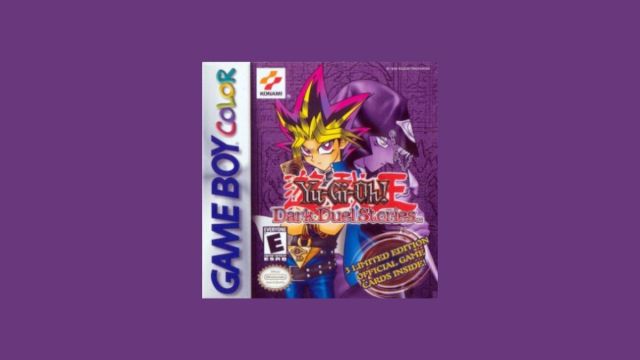
Following in the footsteps of other trading card games on the platform, Yu-Gi-Oh! Dark Duel Stories was the first game in the series to launch in the west. I remember this one hitting shelves and wondering what it was because the TV show and cards weren’t as popular as Pokemon in the UK at the time.
In many ways, Yu-Gi-Oh! is a much more interesting TCG than Pokemon, and that’s attractive when you’re looking for a bit more complexity in your games. Learning the defense and attack mechanics, as well as every card’s ability, which I still struggle with 22 years later, opened the door for me and many others to a world of games we didn’t think we could handle. While the series as a whole should be acknowledged for this, Yu-Gi-Oh! Dark Duel Storie really was one of the early titles that pushed on those floodgates.
4. Harry Potter and the Philosopher’s Stone (2001)

If you grew up in the ’90s and early ’00s, then you’ll remember playing at least one version of Harry Potter and the Philosopher’s Stone. Rather than being a low-quality movie game, like so many of the others we’d seen around this time, this game blew everyone out of the water. I’ve no doubt a bit more budget was thrown behind it since it was there to mark the launch of the first movie and had trailers in theaters.
Everything from the 2.5D-ish view, through the way it sticks to the source material, to the additions and collectibles that were added to make it more immersive. This really is a fantastic game on any platform and, in my opinion, made way for good movie games. They’re few and far between, but this title proved that if you release a genuinely good movie tie-in game, it’s going to be remembered forever as a quality game.
3. Donkey Kong Country (2000)
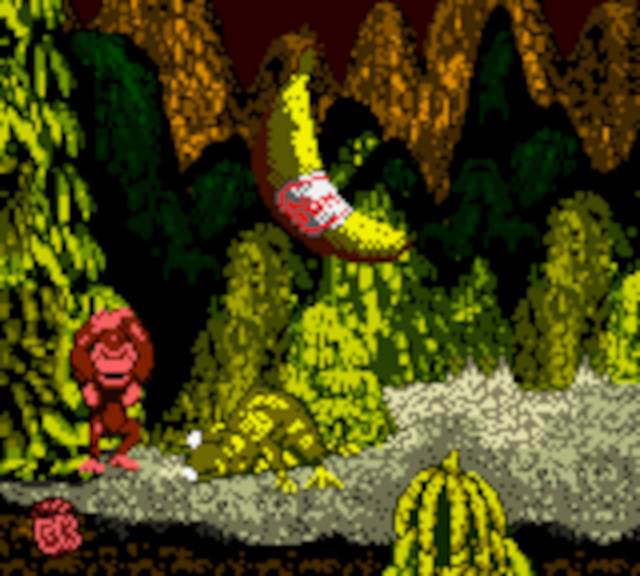
Donkey Kong Country isn’t a Game Boy Color exclusive, but the port did show an entire generation what they’d missed out on when it came to their handheld device. I spent at least two summers running through this game. I couldn’t get over how good the graphics were compared to the 2D sprites I was used to.
This series is another that’s incredibly well-known, and it couldn’t have started without this first game. It should be a Nintendo staple, but instead, it laid the groundwork for other similar titles that blend fast-paced movement with platforming and tricky level design.
2. Dragon Warrior I & II (2000)
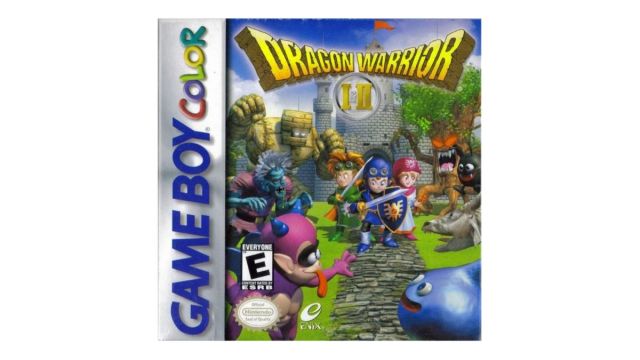
Dragon Warrior I & II is a collection of the first two Dragon Quest games. It broke ground because it gave new players a place to check out this series that wasn’t restricted to a TV and opened them up to the world of JRPGs. This long-running series is one of the most iconic in games today, but it all started here, and you could play it on the go. As someone who took way too long to get into this genre, I could really have done with giving in and grabbing this game so I knew what I was missing out on.
1. The Legend of Zelda: Link’s Awakening DX (1998)
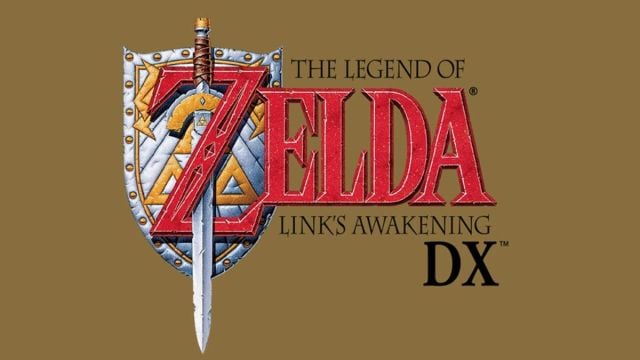
The Legend of Zelda: Link’s Awakening could be the most iconic Zelda game in existence, but it’s also one I think is a little polarizing. The story ends with a reveal that addresses a concept most games actively try to avoid. Somehow, Link’s Awakening gets away with it, and it’s a beautiful title to play on handheld. It even got a remake not too long ago.
If you’re going to play one game from this list, it should be this one, and that’s why it’s iconic. It just stands out, and people resonate with it. There are themes that hit home with some players and others completely miss, but it has an impact on everyone. Even if that impact is just a frustrated memory of solving a puzzle.


